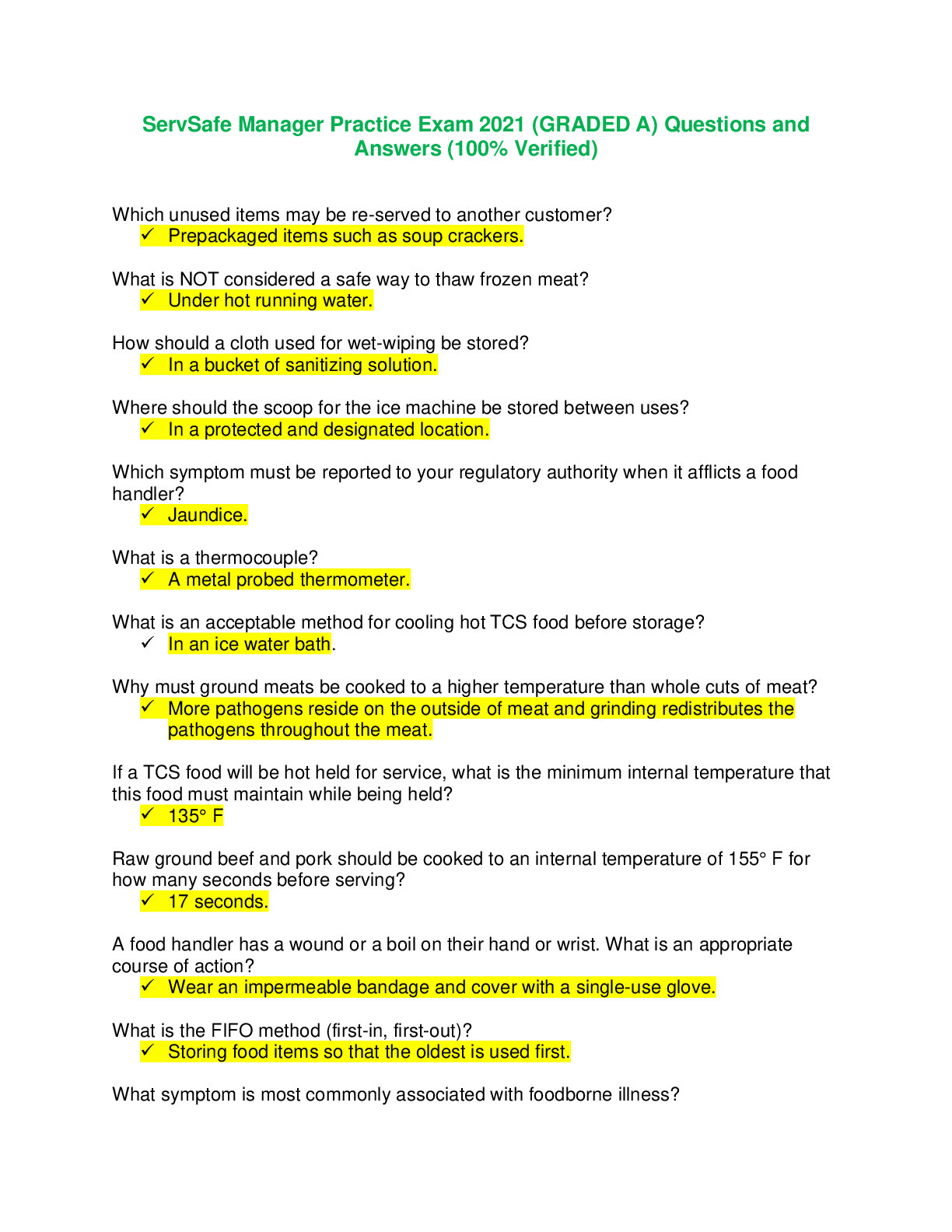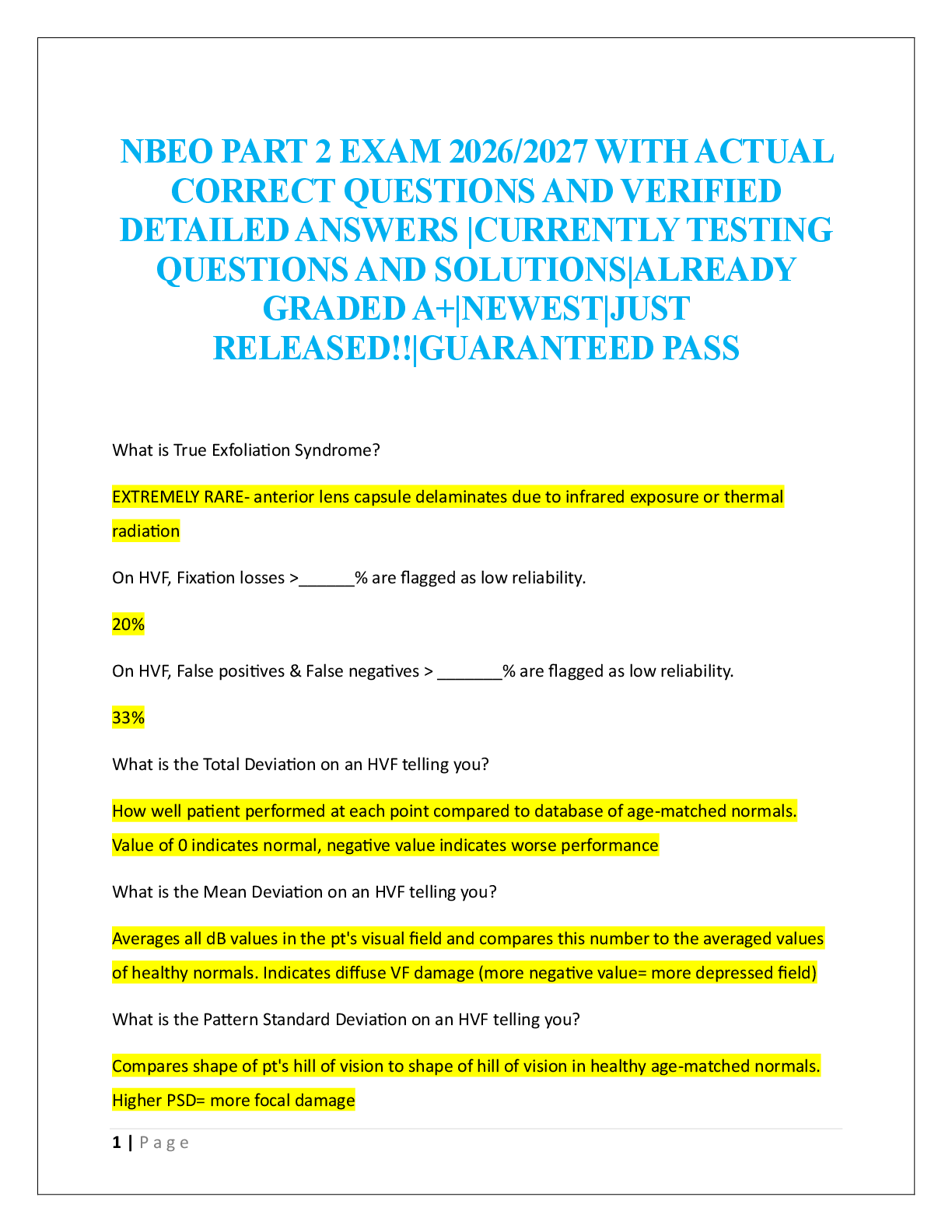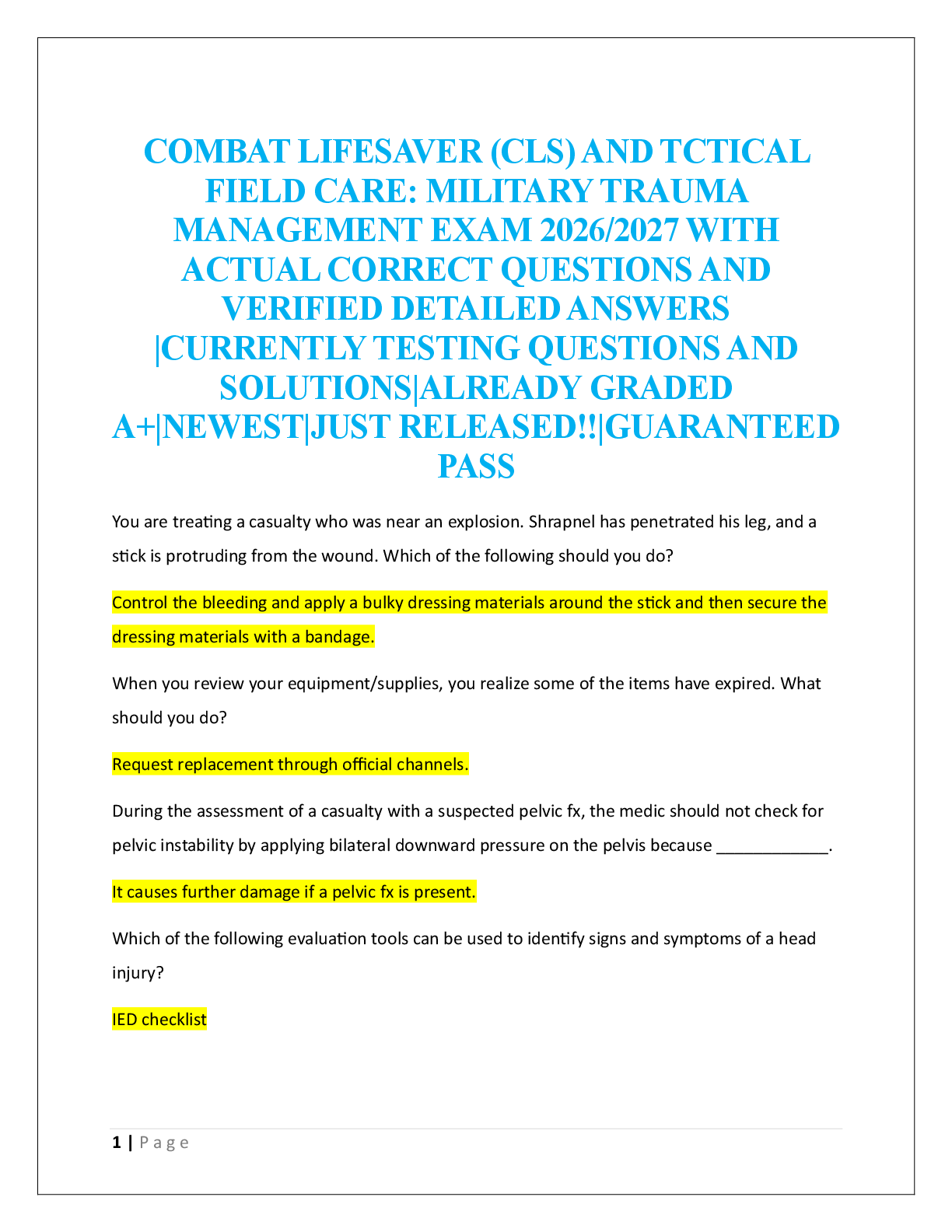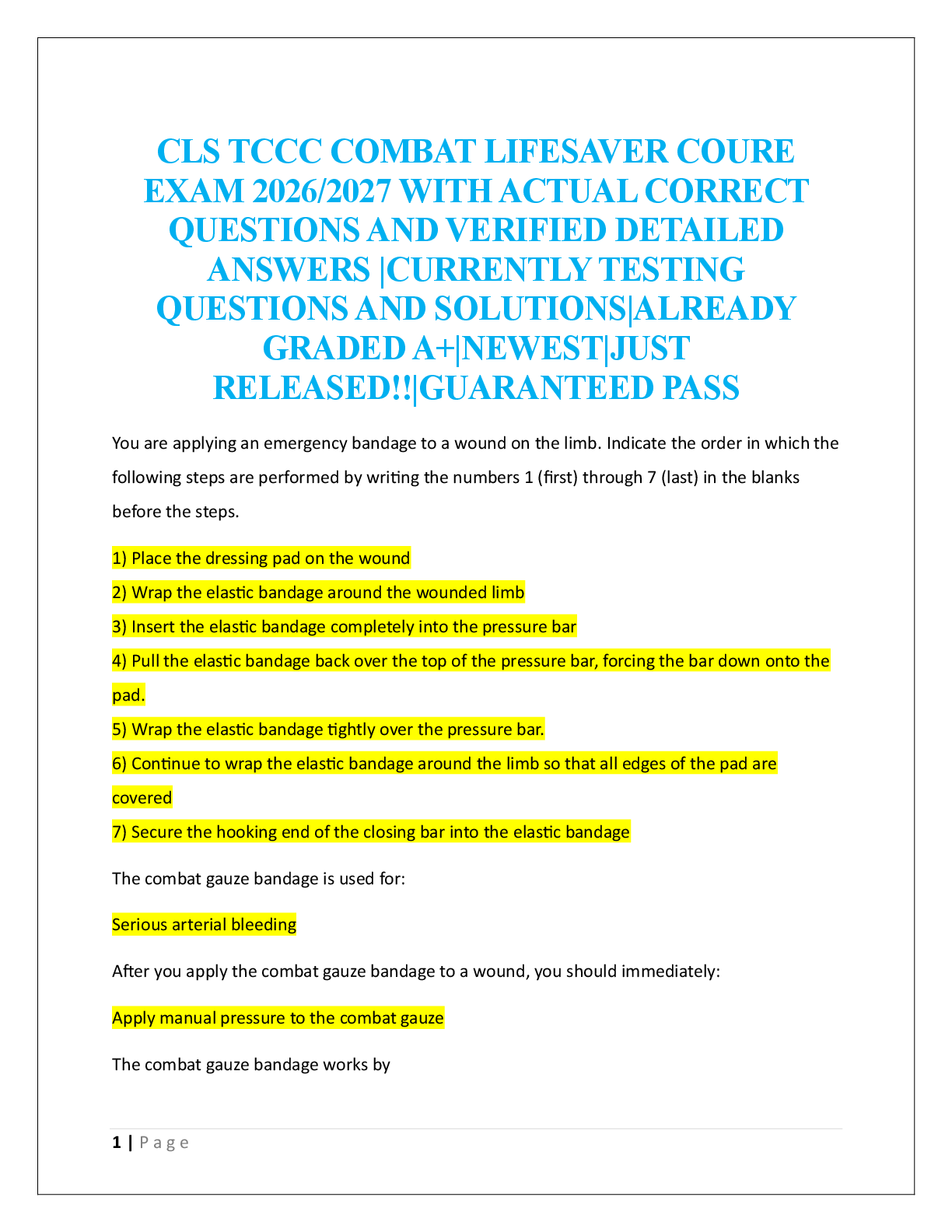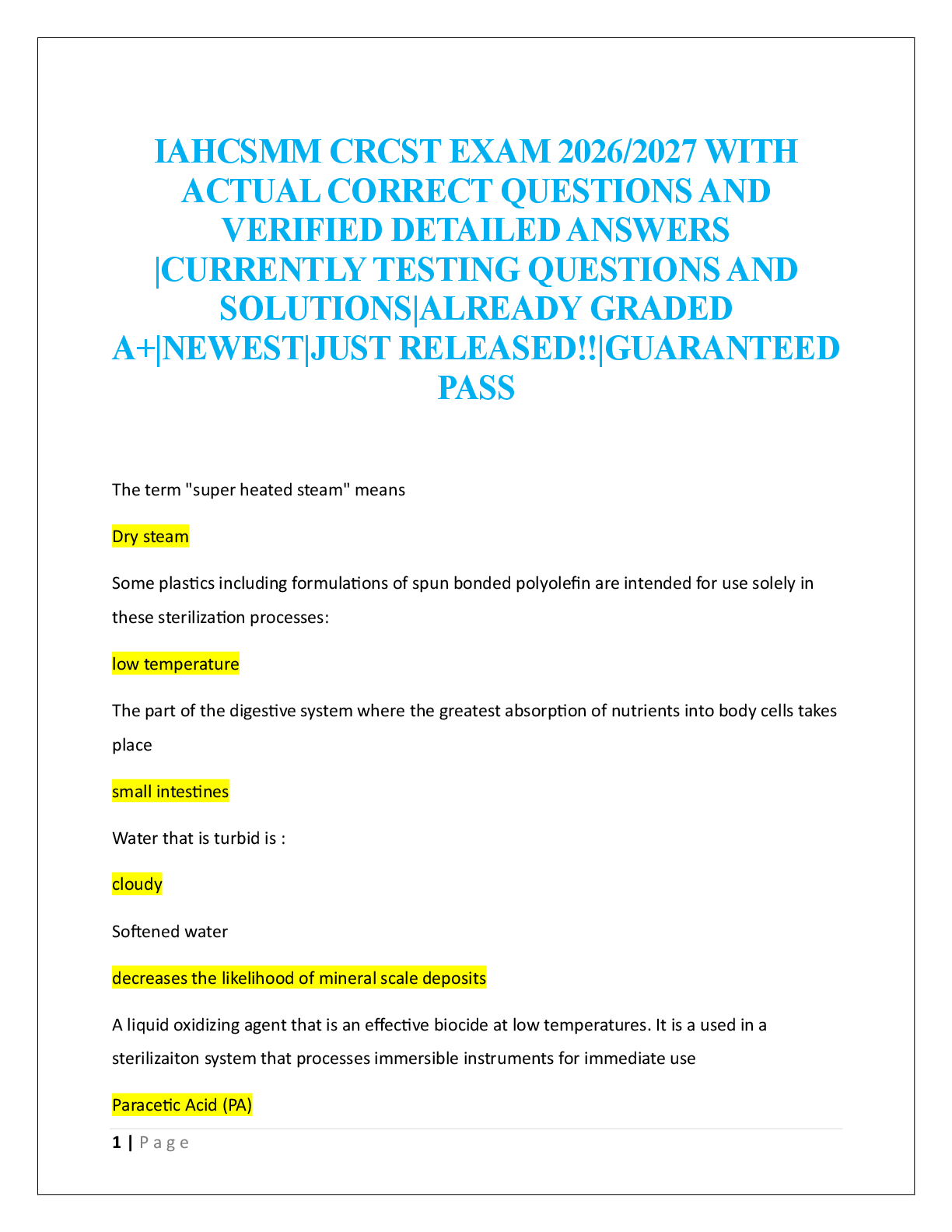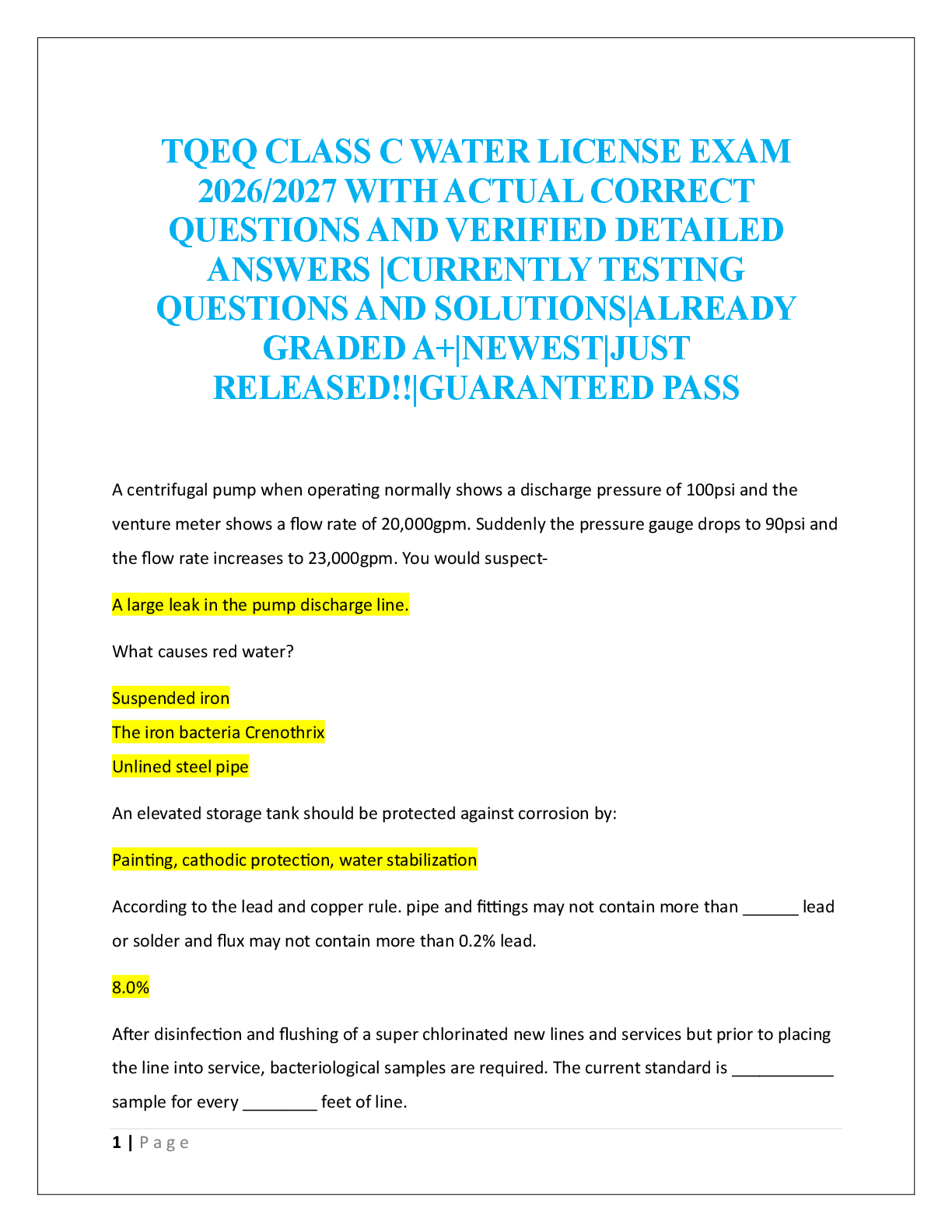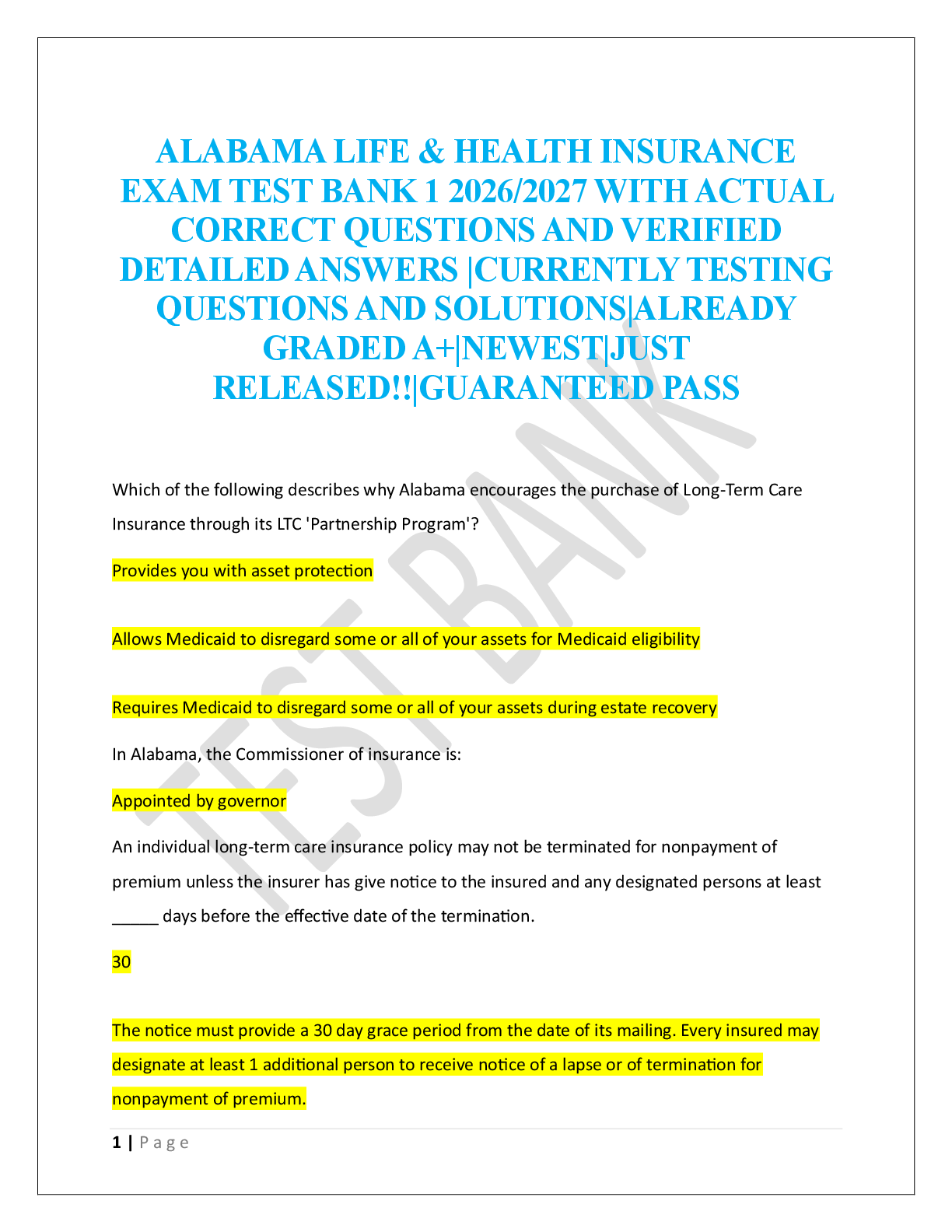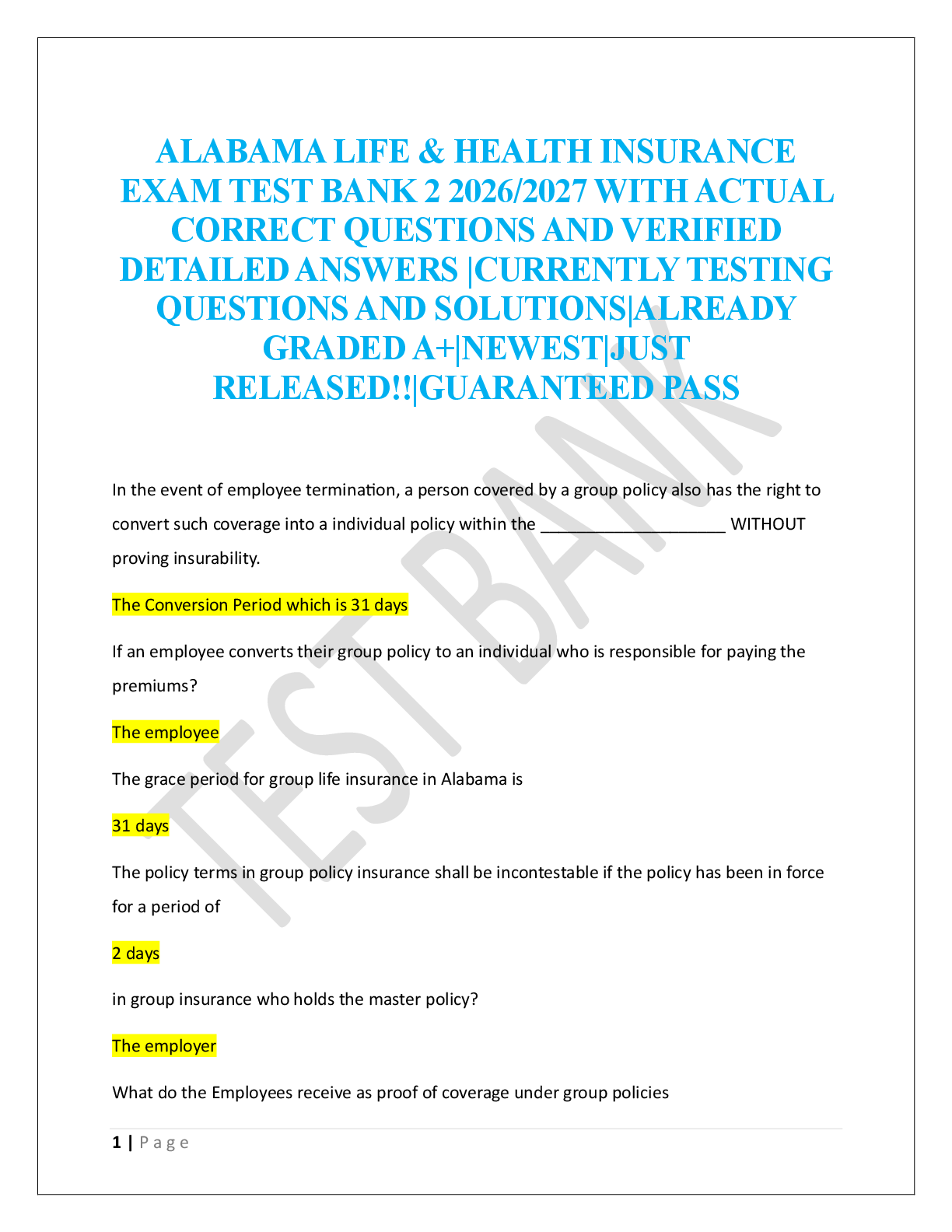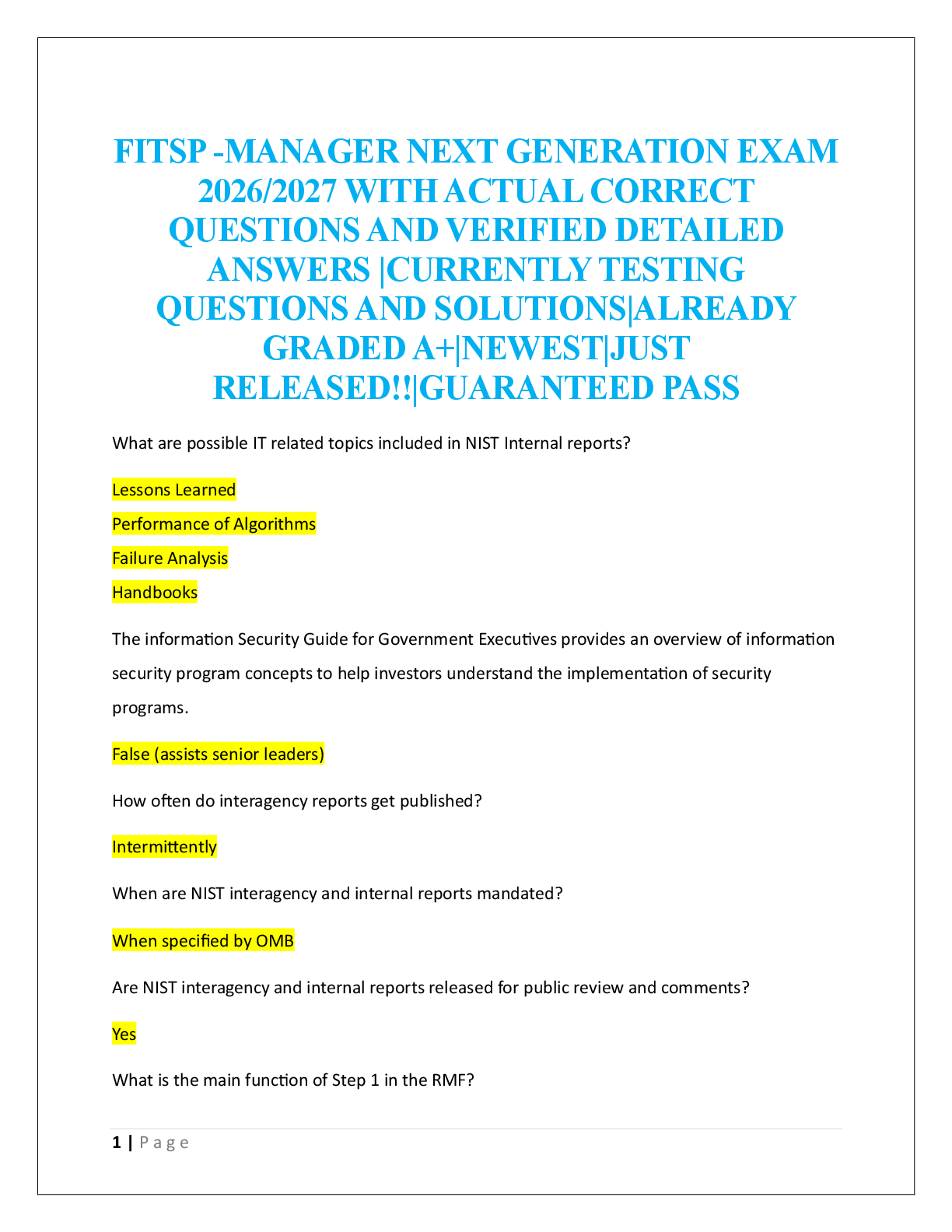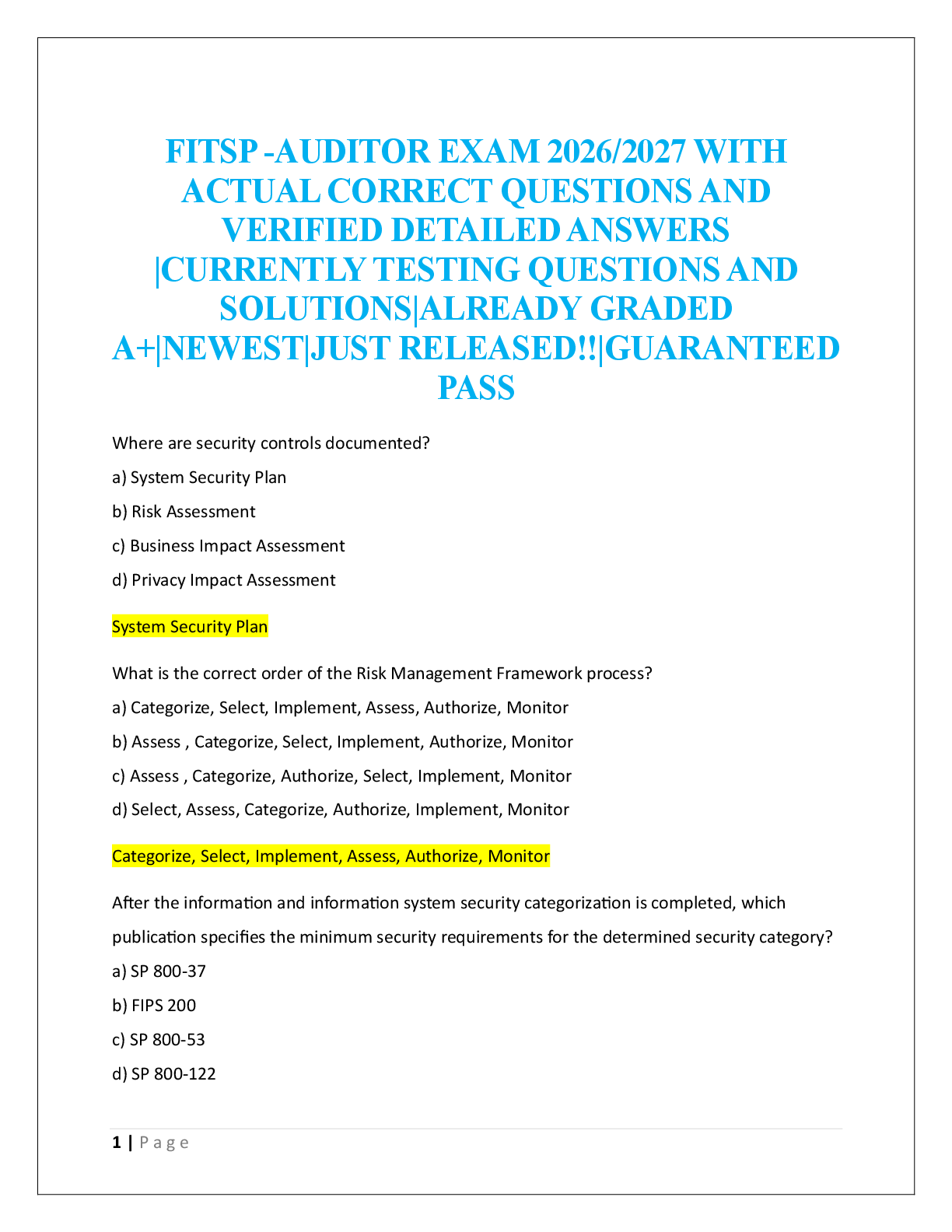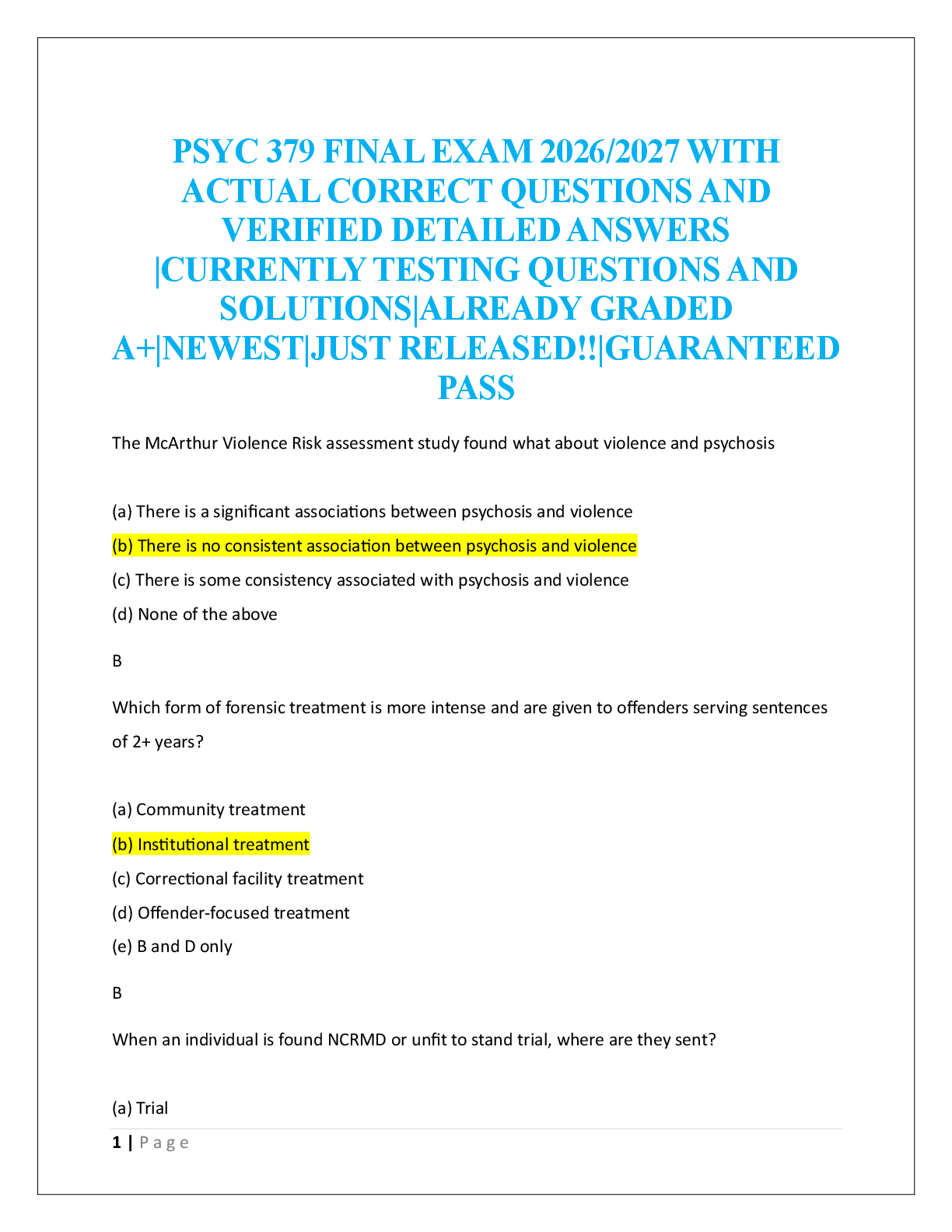Biology > EXAM > BIO 171 Module 1 Exam(Questions & Answers)- Microbiology- Portage Learning (100% CORRECT SOLUTION) (All)
BIO 171 Module 1 Exam(Questions & Answers)- Microbiology- Portage Learning (100% CORRECT SOLUTION)
Document Content and Description Below
BIO 171 Module 1 Exam Exam 1 1. True or False: A virus is considered a microorganism. False. Viruses are not living and as such are not considered microorganisms. Viruses can, however, be clas ... sified as microbes, a more general term that includes microorganisms and viruses. 2. What is the smallest biological unit of life? A cell. 3. At a generalized level, all cells are comprised of what? Macromolecules* *A student may also answer: Proteins, Lipids, Nucleic acids and Polysaccharides but they must answer with all four to be fully correct. 1. How many different types of amino acids are available from which to make proteins? 20 2. Define an essential amino acid. An essential amino acid cannot be produced by the human body and as such must be take in from the environment through alternative sources (i.e) food. 2. Where can the two major types of nucleic acids be found in the cell and what are their roles? While both DNA and RNA can be found in the nucleus (center of the cell), only RNA is capable of leaving the nucleus. DNA contains a vast amount of hereditary information and is responsible for the inheritable characteristics of living organisms. RNA is responsible for deciphering the hereditary information in DNA and using it to synthesize proteins. 1. Complete the following DNA strand and indicate how many bonds are formed for each complementary pair: 3’ GGTCATCG 5’ 5’ CC AGC 3’ 3’ GGTCATCG 5’ 5’ CCAGTAGC 3’ There are 2 bonds formed between A and T, and 3 bonds between G and C. 1. The plasma membrane (select all that are true): A. Restricts movement of materials in and out of the cell B. Is often a triple layer comprised of lipids C. Prevents essential nutrients from escaping D. Contains hydrophobic tails pointing outward A and C 2. How many carbon atoms are present in the monosaccharide glucose? A. 1 B. 3 C. 6 D. 12 C. The molecular formula of Glucose is C6H12O6 True of False: The genetic material within a prokaryotic cell is contained within a membrane- enclosed region. False. Only eukaryotic cells contain its genetic material within a nucleus True or False: Prokaryotic cells can be subdivided into Bacteria and Archaea. True Describe the 4 basic bacterial morphologies. Coccus (round/spherical), bacillus (rod), vibrio (curved rod) or spirillum (spiral/corkscrew). True or False: Archaea is noted for its ability to survive under harsh conditions. True. Archaea can often be found in harsh conditions such as high salt levels, high acid conditions, high temperatures and even oxygen-poor conditions. 1. Which of the following microorganisms are considered to be Eukarya? Select all that apply. A. Animalia B. Plantae C. Fungi D. Protista A,B,C,D 2. True of False: All multicellular microorganisms classified as Animalia are heterotropic. True 3. Microorganisms classified as Plantae obtain most of their energy by converting energy into energy. Light (sunlight); chemical (sugars) 1. A defining characteristic of fungi is the presence of chitin in the cell walls. Which of following also contain chitin? Select all that apply. A. Mushrooms B. Bacteria C. Yeast D. Molds A, C and D all contain chitin. 2. True or False: A defining characteristic of Protista is the inability of colonies to form tissue layers. True. 1. Cell walls are found in which of the following (select all that apply): A. Plants B. Fungi C. Bacteria D. Mammalian cells E. Algae A, B, C, E 2. The function of the ribosome is (select all that apply): A. Lipid synthesis B. Protein synthesis C. To produce energy (ATP) D. Protein modification and distribution E. Waste disposal via hydrolytic enzymes B. Ribosomes are located in the cytoplasm of prokaryotic cells and in the ER of eukaryotic cells. 1. Identify the following cellular components by matching the number with the description. A. Cell wall B. Lysosome C. Centriole D. Rough endoplasmic reticulum E. Plasma membrane F. Nucleus G. Golgi apparatus 1 F 2 B 3 E 4 G 5 D [Show More]
Last updated: 3 years ago
Preview 1 out of 5 pages
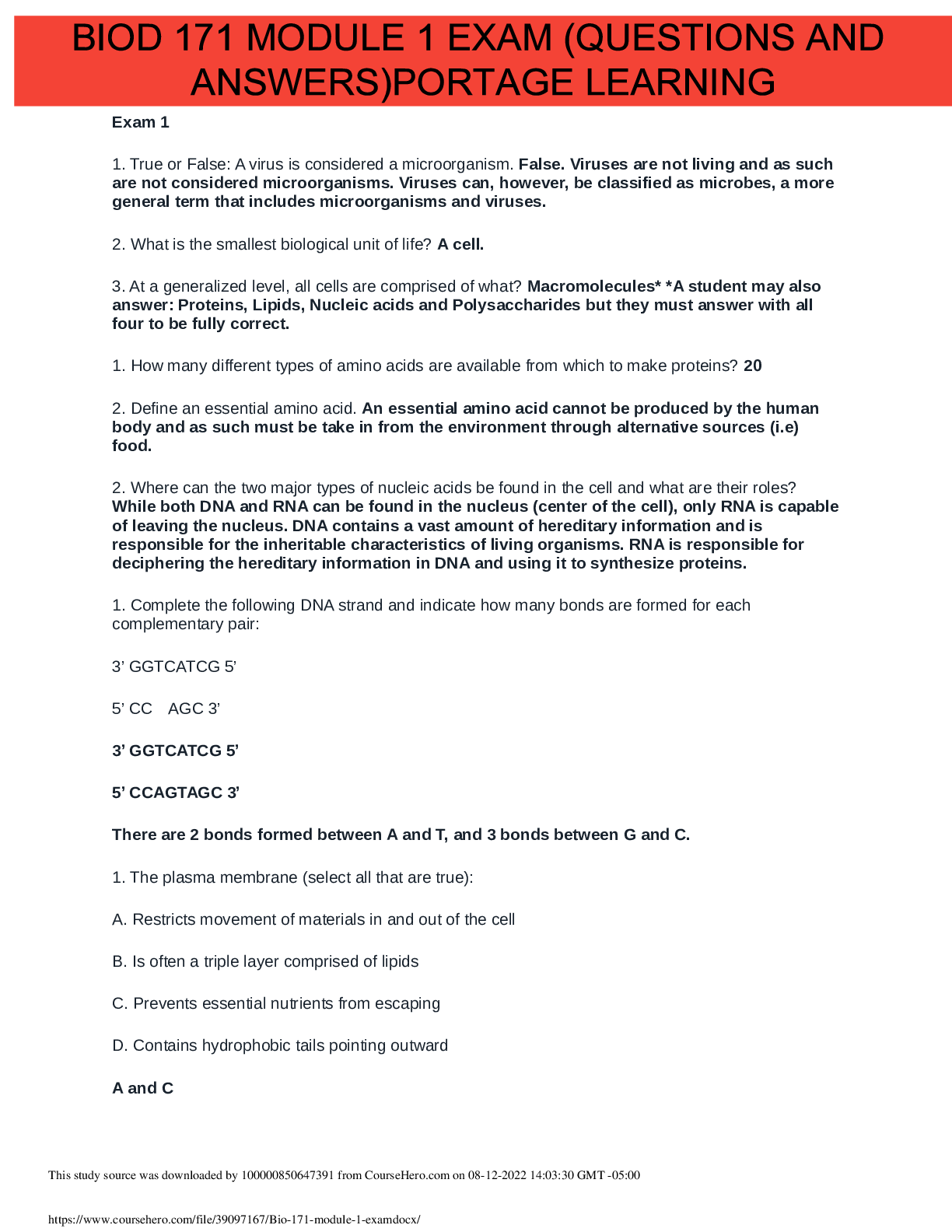
Buy this document to get the full access instantly
Instant Download Access after purchase
Buy NowInstant download
We Accept:

Reviews( 0 )
$10.00
Can't find what you want? Try our AI powered Search
Document information
Connected school, study & course
About the document
Uploaded On
Jan 07, 2022
Number of pages
5
Written in
All
Additional information
This document has been written for:
Uploaded
Jan 07, 2022
Downloads
0
Views
408


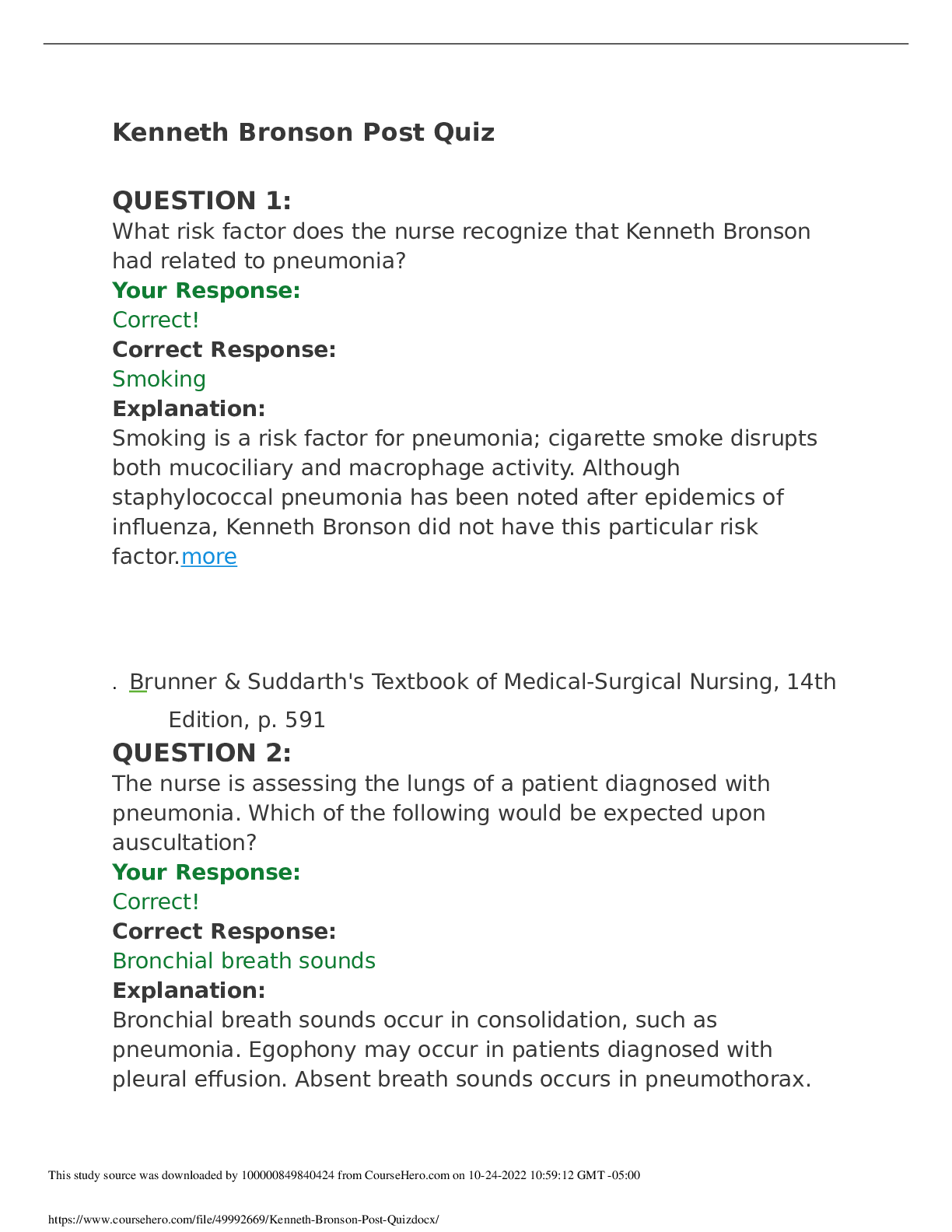

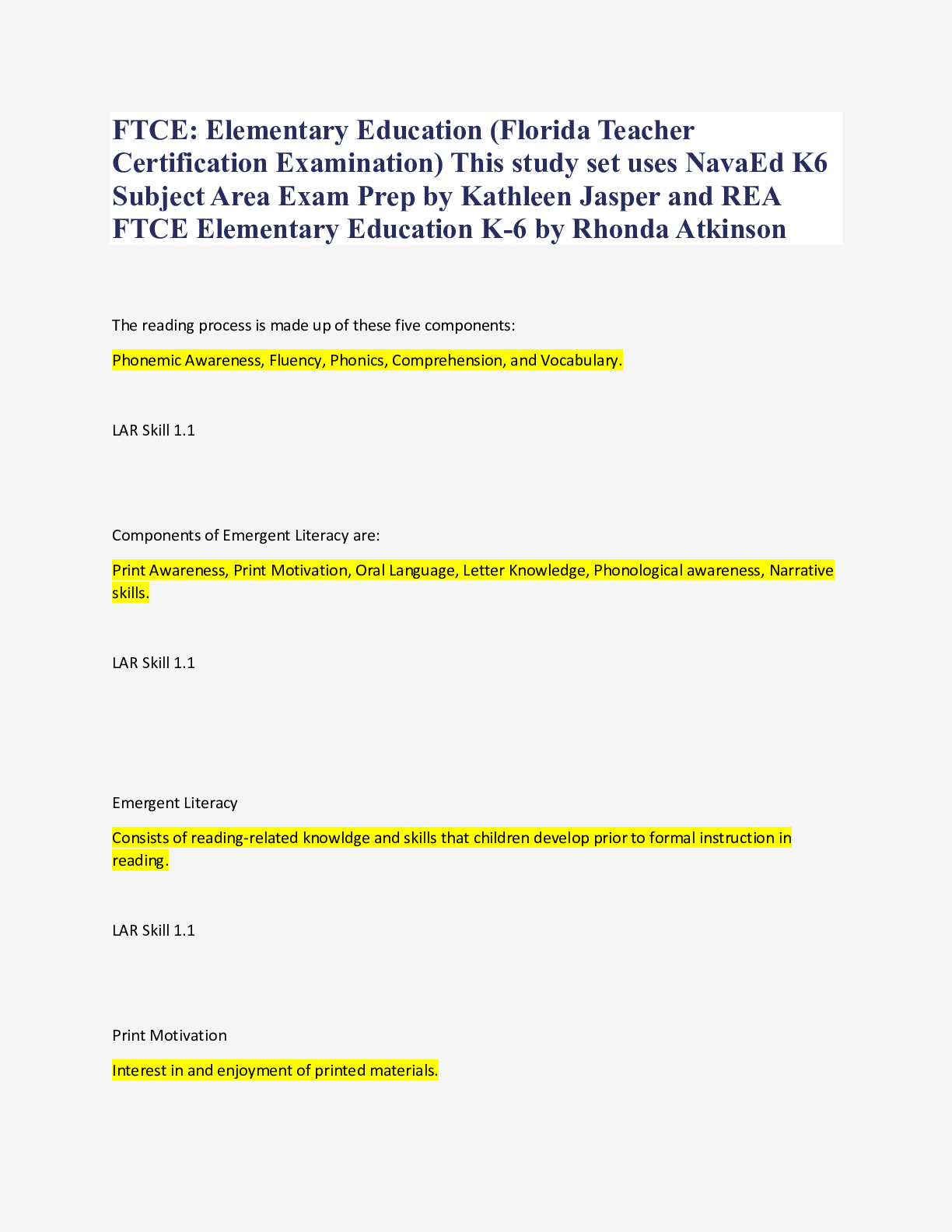

 Questions and Answers 100% VERIFIED.png)
 Questions and Answers 100% correct Solutions.png)



